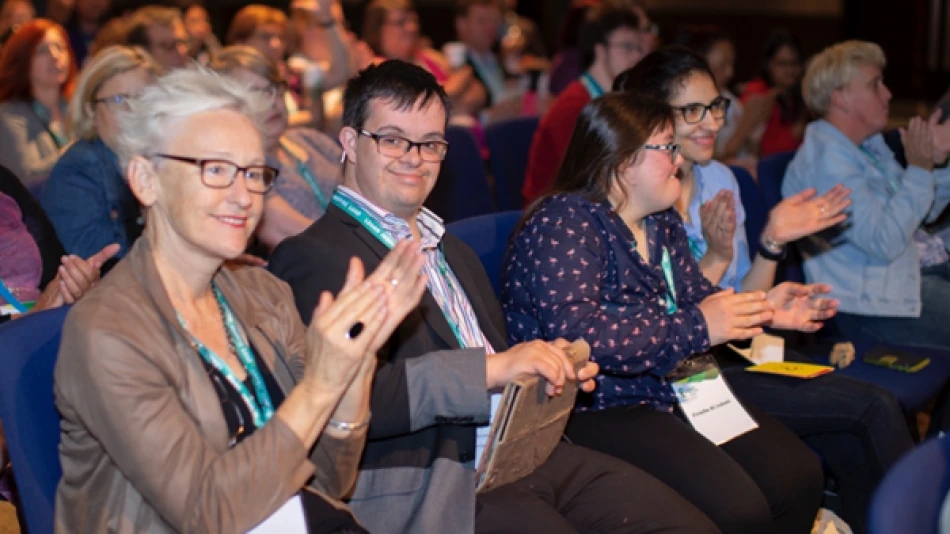
Shaping Inclusion: 152 Speakers Convene at Sharjah's 'We Are the Embrace' Conference
Middle East Takes Center Stage in Global Disability Rights Movement
For the first time, the Middle East and North Africa will host the world's largest gathering on intellectual disability inclusion, as Sharjah welcomes the 2025 "Inclusion International" World Congress. The September 15-17 event brings together 152 speakers from 72 countries, positioning the UAE emirate as a regional hub for disability rights advocacy and signaling a broader shift toward inclusive policies across the Arab world.
A Strategic Regional Pivot
The decision to host this landmark conference in Sharjah represents more than symbolic recognition—it reflects the Gulf region's growing influence in global human rights discourse. Unlike previous conferences dominated by Western perspectives, this gathering places Arab voices and Middle Eastern experiences at the center of international disability policy discussions.
The timing is particularly significant as Gulf states increasingly position themselves as bridges between East and West on social issues. The UAE's hosting follows its successful management of COP28 and other major international forums, demonstrating the country's capacity to facilitate complex multilateral discussions.
High-Profile Leadership Signals Policy Intent
The speaker roster reads like a who's who of global disability advocacy, led by Sue Ellen Swinsen, President of Inclusion International—the world's largest network representing people with intellectual disabilities across 115 countries. Swinsen's background as a senior advisor in both the Obama and Biden administrations' education departments brings significant policy credibility to the Sharjah gathering.
Sheikha Jamila bint Mohammed Al Qasimi, President of Sharjah City for Humanitarian Services, will leverage her decades of advocacy experience dating back to the 1980s. Her participation underscores how regional leaders are increasingly willing to engage with international human rights frameworks—a notable evolution from more defensive postures of previous decades.
Cross-Regional Expertise
The conference's strength lies in its blend of policymakers and practitioners. Prince Mired bin Raad of Jordan brings his dual experience as head of Jordan's Supreme Council for the Rights of Persons with Disabilities and as a UN special envoy on landmine treaties. This combination of regional governance experience with international humanitarian work exemplifies the conference's practical approach.
Judy Carr, former education minister from New Brunswick, Canada, will present his groundbreaking Policy 322 on inclusive education—now considered a global model. His presence suggests serious intent to adapt proven Western frameworks to Middle Eastern contexts.
Economic Implications Beyond Social Policy
The conference arrives as Gulf economies diversify away from oil dependence, making human capital development increasingly critical. Countries like the UAE and Saudi Arabia recognize that inclusive policies aren't just moral imperatives—they're economic necessities in knowledge-based economies.
Research consistently shows that inclusive education and employment policies boost productivity and innovation. For Gulf states competing with Singapore and other advanced economies for high-value industries, disability inclusion becomes a competitive advantage rather than a compliance burden.
Breaking New Ground in Arab Advocacy
Perhaps most significantly, the conference features prominent Arab self-advocates like Sheikha Shaikha Al Qasimi, representing people with Down syndrome, and Rahma Khalid, the Arab world's first television presenter with Down syndrome. Their visibility challenges traditional Arab cultural attitudes toward disability while demonstrating that advocacy is increasingly led by disabled people themselves rather than imposed by external organizations.
This shift toward self-advocacy mirrors broader democratization trends across the region, where traditional top-down approaches to social policy are giving way to more participatory models.
Climate and Disability: An Emerging Nexus
The inclusion of Michael Haddad, UN Development Programme goodwill ambassador for climate action, highlights an often-overlooked intersection. As the Middle East faces severe climate challenges—from rising temperatures to water scarcity—disabled populations face disproportionate risks.
Haddad's story of athletic achievement despite partial paralysis provides a powerful narrative, but his climate focus suggests the conference will address practical adaptation challenges rather than relying solely on inspirational messaging.
Long-term Regional Impact
The Sharjah conference represents a calculated bet that the Middle East can become a global leader in inclusive policy development. Unlike Europe or North America, where disability rights evolved gradually over decades, Gulf states have the opportunity to leapfrog directly to best practices.
The presence of UN Convention on the Rights of Persons with Disabilities architect Diane Richler suggests serious engagement with international legal frameworks. For a region historically skeptical of external human rights pressure, this represents a significant strategic shift.
Success in Sharjah could establish the UAE as the region's go-to venue for major human rights conferences, competing directly with Geneva or New York as a neutral ground for sensitive discussions. For the Emirates' broader diplomatic strategy, this represents exactly the kind of soft power projection that complements its economic ambitions.
The conference's ultimate test will be whether high-profile discussions translate into concrete policy changes across participating countries. With 152 speakers and 72 nations represented, the Sharjah gathering has the scale and expertise to drive real change—if political will follows rhetorical commitment.
Most Viewed News

 Layla Al Mansoori
Layla Al Mansoori






